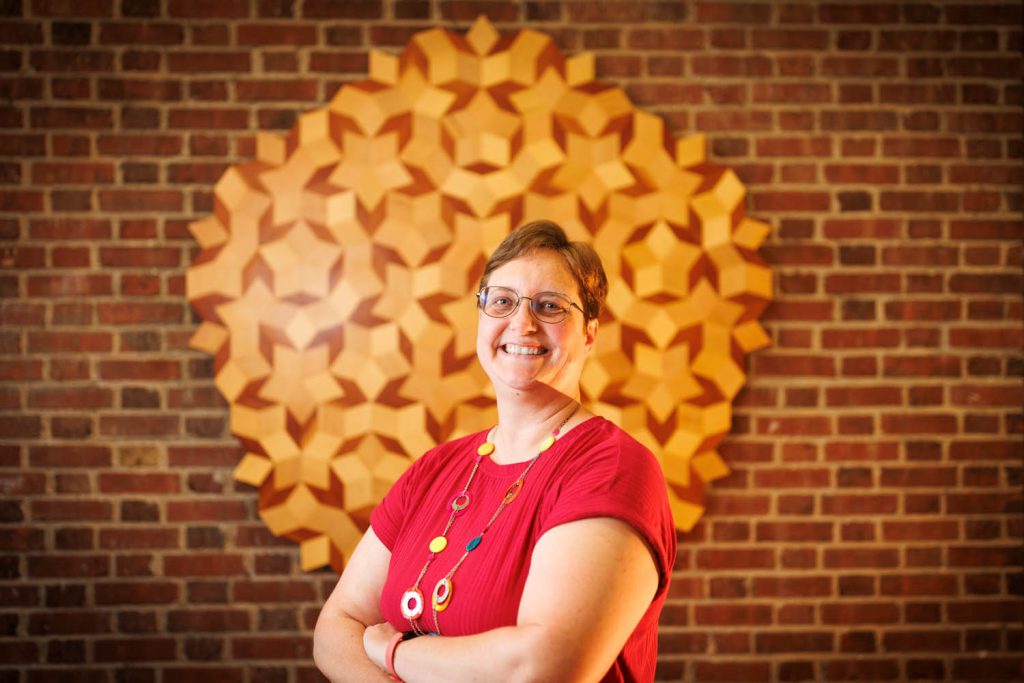
As we kick off this fall semester, I am reflecting on data our department chair shared with us in our pre-semester faculty meeting. The data show that some of our biggest gaps in student grades happen between students who are first-generation college students vs continuing generation college students. One of my colleagues asked what we should be doing about this. There were some answers of being sure to attend workshops put on by our Center for Transformative Teaching, and (in smaller classes) learning student names. Then someone brought up late policies with respect to homework and the conversation turned to “saying the quiet part out loud.” One faculty member realized that their syllabus has a “no late homework” policy, but that they do give students extra time when asked. Such inconsistency rewards students with more “institutional knowledge” about how to do college, and gives them the confidence to self-advocate and request deadline extensions. So, several faculty members resolved to do more to say the quiet part out loud. One shared that she wants to keep the policy in her syllabus but then tell students in class that they can ask her for deadline extensions. Another shared that he is going to change his syllabus to spell out the grace period for late homework. In my class, I do have due dates for homework, but there is no points penalty for late work. On the first day, I have a conversation with students about my philosophy around grades and how I want grades to represent student mastery of our course learning objectives, regardless of when during the semester students master certain objectives. So, I have unlimited attempts at assignments, including students revising assignments and assessments. I typically teach classes with fewer than 40 students, which makes this type of policy more feasible than in a larger section. At the same time, I also talk to the students about the cumulative nature of mathematics classes, and how being exposed to ideas for 150 minutes a week in class is not enough time for brains to master material and encode learning in long-term memories. There is certainly not just one “right” (or even best) way to do grades, homework, late policies. However, when we treat students as humans who have complex lives, and show flexibility where we can, we create an environment more likely to foster feelings of student belonging.
I am challenging myself this semester to say the quiet parts out loud: to explain policies and the reasons behind them, to explain instructional decisions such as my rationale for how I have designed assessment, and share rubrics with students in advance of assessment due dates so that students know my expectations for those assessments. In past semesters, I start off explaining to students why I ask them to engage in certain tasks; as the semester progresses, I start asking them why they think I asked them to engage in a task, and by the end of the semester, they start looking for those connections and reasons. I also have renamed my office hours to be “student hours/AMA” [ask me anything], and talk about these times in class as hours I have set aside in my week to talk to students about mathematics, but also about anything else on their mind, including future careers, being college students, research opportunities, and communication strategies to try with other instructors. I think that a “think aloud” type of approach is important for first-generation students and also transfer students (recognizing some students are in both categories); transfer students don’t have the same introductory experiences as first year students who start at a bachelor’s granting institution. I know that in many of our S-STEM partnerships, faculty mentors, peer mentors, and advisors share responsibilities for helping transfer students learn institutional culture and how to navigate communication with instructors. I think when more instructors say more of the quiet part out loud, it helps all students gain equal access to learning. I look forward to connecting with all of you this fall, having conversations about how to better support transfer students through personal and institutional partnerships. I hope you are all having fantastic starts to your fall semester!
Wendy Smith